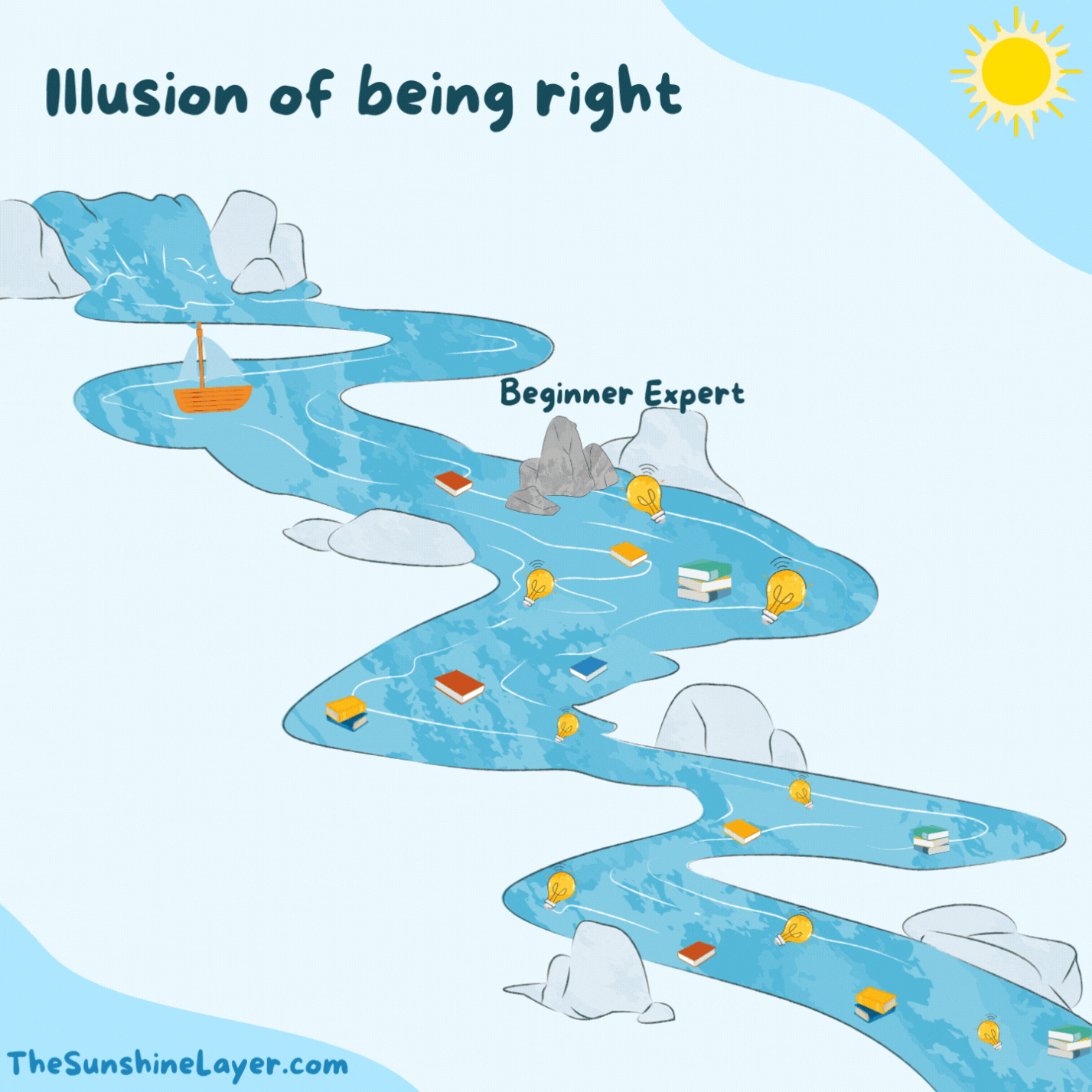The biggest Obstacle stalling your career growth
Lessons from Black Swans and the importance of continuous learning
You and I are wrong, but we don’t yet know it.
We move through life with an air of assurance. We wear an invisible robe that whispers:
"You're right. About this. About that. About almost everything."
Think about it. We are never wrong in the present.
We were wrong in the past, oh, naive selves as we were. But NOW we know better. In this present moment, the truth is clear and we know how the world works.
Or do we?
If we pause for a moment to think about it, this notion of near-omniscience is absurd. Yet it so often underpins our thoughts and actions.
This mindset is where fragility in our understanding of the world stems from.
I’m sure you’ve heard of the term "Black Swan".
It used to symbolize something utterly impossible or non-existent. The phrase implied a complete absurdity, a notion so contradictory it was beyond consideration.
For centuries, a black swan was deemed an impossibility.
Yet, in 1697, Europeans encountered black swans in Australia, shattering the long-held belief in their non-existence. This event exemplifies that even the most improbable scenarios can occur.
Despite this lesson, we continue to make numerous assumptions daily, considering them absolute truths.
These assumptions shape our perception of reality, often blinding us to the vast array of possibilities beyond our beliefs. Recognizing this tendency is the first step in acknowledging our own limitations and the vastness of what we don't know.
Okay, what does this have to do with stalling my career?
This sense of infallibility parallels the "Expert Beginner", also known as “Senior Junior”.
Throughout my career I interacted with a lot of “expert beginners”. Hell, I was one of them. Surely still am to some extent.
This trap eludes no-one.
The Expert Beginner land is the magical (read cursed) place where developers reach a certain level of proficiency and then stop progressing, believing they've learned all there is to know.
They stop seeking new knowledge or challenging their understanding, leading to a plateau in skills and awareness.
They assume their solutions and understandings are nearly always correct, mirroring the general human tendency towards assumed omniscience.
But this mindset is particularly detrimental in software engineering, where technologies and best practices are constantly evolving.
Just as the discovery of black swans challenged the universal belief in their nonexistence, breakthroughs in technology frequently overturn established norms in software development.
How do you get out of this trap?
1. Embrace Continuous Learning
Learning is a never-ending journey. In technology, as in life, there's always something new to discover.
Carve couple of minutes everyday to read and experiment with technology. If you're not constantly learning, then you're running behind.
2. Cultivate Humility
Recognize that no matter how much you know, there's always more to learn. The world is vast and complex, and our understanding is inherently limited. You are a student for life.
3. Seek Diverse Perspectives
Engage with others who have different skills, backgrounds and viewpoints. This will challenge your assumptions and expose you to new ideas and approaches.
Get out of your bubble or comfort zone. It’s true what they say. If you feel like the smartest person in the room, you need to switch rooms.
4. Reflect and Reassess
Regularly take time to reflect on your beliefs and practices. Consider how new information might affect your understanding and be willing to adjust your views accordingly.
5. Encourage Constructive Criticism
Create an environment where peers can offer feedback and constructive criticism. Being challenged is one of the most effective ways to grow and avoid complacency.
6. Experiment and Learn from Failure
Don't be afraid to try new things. Yes, you'll be awful at them initially. But don't fear being wrong or making mistakes. Failure is merely an iteration toward proficiency.
Conclusion
Understanding and mitigating our inherent belief in our own rightness is crucial for personal and professional growth.
That’s not to say I encourage you to chase after each and every buzzword and hype the tech world concocts on a weekly basis. Fundamentals trump these. However, I encourage you to constantly keep an eye out on what other professionals in the field have to say.
By embracing humility, continuous learning, and openness to new ideas, we can avoid the pitfalls of the "Expert Beginner" and the assumed omniscience, leading to a more nuanced and expansive understanding of the world and our place within it.
P.S. This train of thought was triggered by reading the book "Being Wrong" by Kathryn Schulz, which I highly recommend.
Pay it forward
Having said all these, I decided to introduce a new section to the newsletter."Pay It Forward" is where I'll share articles that piqued my curiosity and contributed to my "Today I Learned" moments in the current week.
Here are this week’s knowledge nuggets:
How Amazon S3 Achieves 99.999999999% Durability - by
Introduction to Pre-caching - by
Your ultimate self-confidence toolkit - by
Simplifying as much as possible is the way to go in the engineering industry by
If you liked this post, share it with your friends and colleagues.






Perhaps the only reliable way to avoid getting completely blindsided by a black swan is to believe that you know very little at any given point in time.
Great post Helen!
Also, thanks for the mention about the pre-caching article👍
Thank You Helen for this lovely article